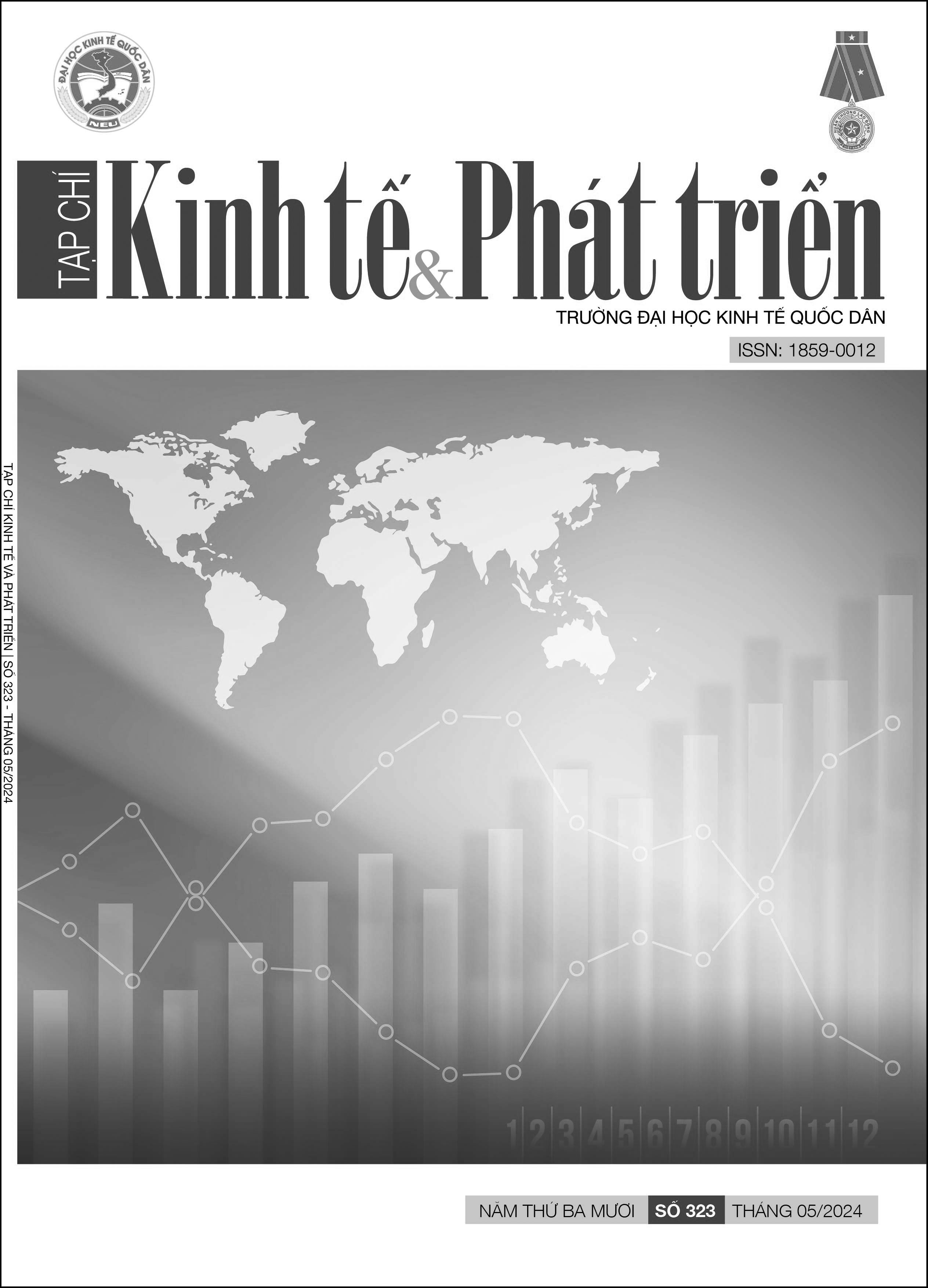Doanh nghiệp nhỏ và vừa trong hội nhập kinh tế quốc tế: Thực trạng, vấn đề và giải pháp đối với nhóm ngành dệt, sản xuất trang phục và điện tử
DOI:
https://doi.org/10.33301/JED.VI.1745Từ khóa:
Môi trường thể chế, thương mại quốc tế, doanh nghiệp nhỏ và vừaTóm tắt
Hội nhập kinh tế quốc tế là một xu hướng tất yếu và mang lại nhiều cơ hội cho nền kinh tế Việt Nam. Tuy nhiên, thực tế cho thấy nhóm được hưởng lợi chính vẫn là khối doanh nghiệp có vốn đầu tư nước ngoài (FDI). Trong khi đó, doanh nghiệp nhỏ và vừa (DNNVV) còn gặp nhiều khó khăn trong việc tham gia vào chuỗi giá trị toàn cầu cũng như hoạt động xuất nhập khẩu. Nghiên cứu này đánh giá các yếu tố khách quan ảnh hưởng tới khả năng tham gia thương mại quốc tế của DNNVV trong nhóm ngành dệt, sản xuất trang phục và điện tử. Phân tích định lượng cho thấy một số yếu tố thể chế như tiếp cận đất đai, chi phí không chính thức và chất lượng lao động có ảnh hưởng lớn tới quá trình tiếp cận thị trường quốc tế của DNNVV. Từ đó, nhóm nghiên cứu đưa ra những khuyến nghị chính sách nhằm nâng cao năng lực cạnh tranh và gia tăng sự hiện diện của DNNVV Việt Nam trong chuỗi giá trị toàn cầu.
Tài liệu tham khảo
Aguilera, R.V. & Grøgaard, B. (2019), ‘The dubious role of institutions in international business: A road forward’, Journal of International Business Studies, 50(1), 20-35.
Bianchi, C. & Wickramasekera, R. (2016), ‘Antecedents of SME export intensity in a Latin American Market’, Journal of Business Research, 69(10), 4368-4376.
Deng, P. & Yang, M. (2015), ‘Cross-border mergers and acquisitions by emerging market firms: A comparative investigation’, International Business Review, 24(1), 157-172.
Deng, P. & Zhang, S. (2018), ‘Institutional quality and internationalization of emerging market firms: Focusing on Chinese SMEs’, Journal of Business Research, 92, 279-289.
Jackson, G. & Deeg, R. (2008), ‘Comparing capitalisms: Understanding institutional diversity and its implications for international business’, Journal of International Business Studies, 39(4), 540-561.
Luo, Y. & Tung, R.L. (2007), ‘International expansion of emerging market enterprises: A springboard perspective’, Journal of International Business Studies, 38(4), 481-498.
Luo, Y. & Tung, R.L. (2018), ‘A general theory of springboard MNEs’, Journal of International Business Studies, 49(2), 129-152.
Luo, Y., Xue, Q. & Han, B. (2010), ‘How emerging market governments promote outward FDI: Experience from China’, Journal of World Business, 45(1), 68-79.
Marquis, C. & Raynard, M. (2015), ‘Institutional strategies in emerging markets’, Academy of Management Annals, 9(1), 291-335.
Mathews, J.A. (2006), ‘Dragon multinationals: New players in 21st century globalization’, Asia Pacific Journal of Management, 23(1), 5-27.
Nguyen, T.Q., Pham, H.C. & McClelland, R. (2020), ‘Participating and upgrading in global value chains: The case of small and medium enterprises in Vietnam’, in The Economy and Business Environment of Vietnam, Macdonald, R. (Ed.), Springer International Publishing, 75-92.
Peng, M.W., Wang, D.Y.L. & Jiang, Y. (2008), ‘An institution-based view of international business strategy: A focus on emerging economies’, Journal of International Business Studies, 39(5), 920-936.
Shi, W., Sun, S.L., Yan, D. & Zhu, Z. (2017), ‘Institutional fragility and outward foreign direct investment from China’, Journal of International Business Studies, 48(4), 452-476.
Sun, S.L., Peng, M.W., Lee, R.P. & Tan, W. (2015), ‘Institutional open access at home and outward internationalization’, Journal of World Business, 50(1), 234-246.
Wu, B. & Deng, P. (2020), ‘Internationalization of SMEs from emerging markets: An institutional escape perspective’, Journal of Business Research, 108, 337-350.





